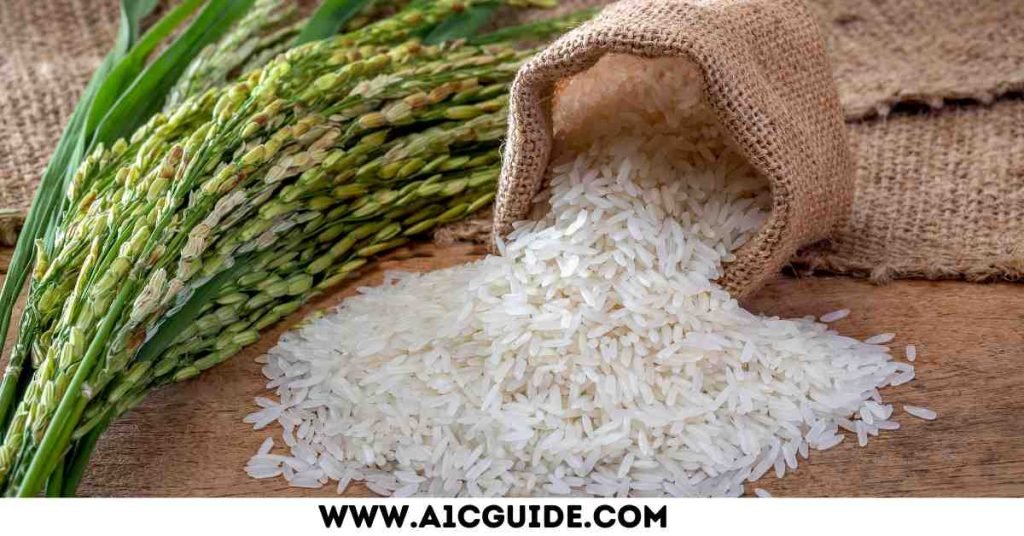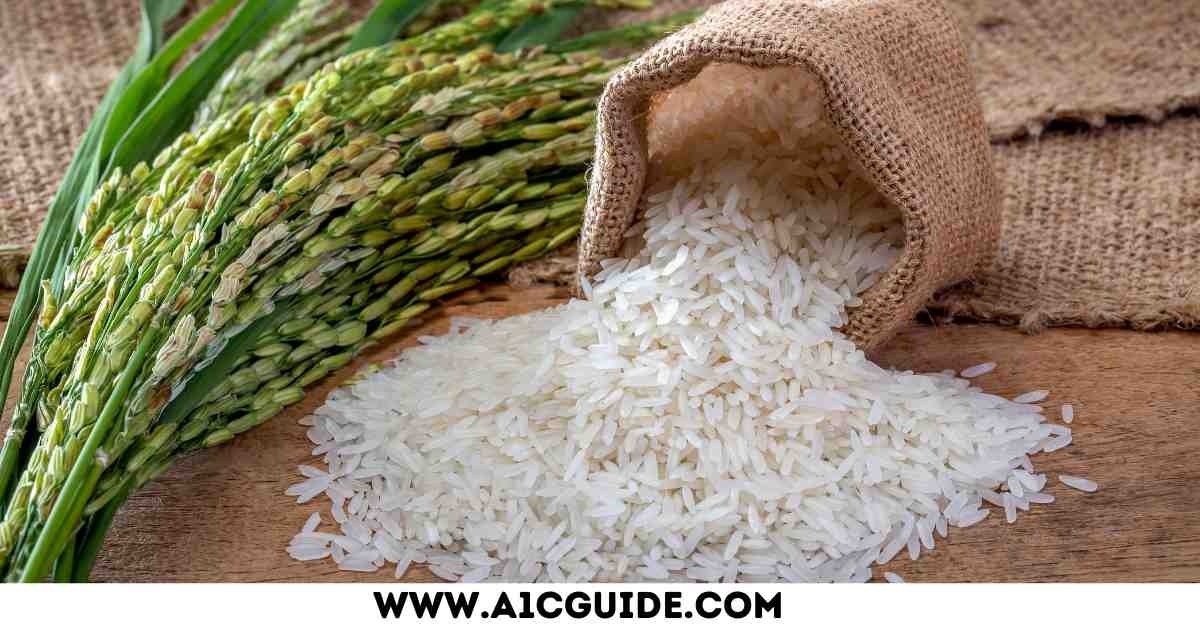Table of Contents
Introduction
Diabetes is a severe health issue and taking measures to control it is vital. Jasmine rice is an aromatic type of long-grain rice with a light floral scent.
Many people with diabetes wonder whether they can eat jasmine rice as part of their diet. This post will discuss whether jasmine rice is safe for diabetics, its potential health benefits, and the precautions to take when consuming it.

10 Benefits of Jasmine Rice for Diabetics
1. Low Glycemic Index: Jasmine rice has a low glycemic index (GI) which measures how quickly food affects blood sugar levels. This makes it a good option for people with diabetes who need to control their blood sugar levels.
2. Nutrient Dense: Jasmine rice is a good source of crucial vitamins and minerals such as magnesium, phosphorus, niacin, thiamin, and iron. This makes it a nutrient-dense food to help people with diabetes meet their nutrient needs.
3. Low in Calories: Jasmine rice is a low-calorie food, making it a good option for people with diabetes who also need to watch their calorie intake.
4. High Fiber Content: Jasmine rice is high in fibre, which can help slow down digestion and keep blood sugar levels steady. This makes it a good option for people with diabetes who must regulate their blood sugar.
5. Low Fat Content: Jasmine rice is low in fat, making it a good choice for diabetics who need to watch their fat intake.
6. Rich in Antioxidants: Jasmine rice is rich in antioxidants that can help reduce inflammation in the body. This can be beneficial for diabetics who are at risk of inflammation-related complications.
7. Low Sodium Content: Jasmine rice is low in sodium, which can also help reduce the risk of high blood pressure, a common complication of diabetes.
8. Gluten-Free: Jasmine rice is gluten-free, making it a safe option for people with gluten intolerance or celiac disease.
9. Versatile: Jasmine rice is a versatile food that can also be used in various dishes and recipes. This makes it an excellent option for diabetics who need to get creative with their meals.
10. Easy to Digest: Jasmine rice is easy to digest, making it a good option for people with digestive issues.
Precautions for Diabetics Eating Jasmine Rice
Although jasmine rice is a good option for diabetics, some precautions must be taken. Diabetics should still watch their portion size and combine jasmine rice with other foods such as vegetables and lean proteins. They should also be mindful of their overall calorie and carbohydrate intake.
Frequently Asked Questions
Q: Can diabetics eat jasmine rice?
A: Yes, diabetics can eat jasmine rice as it has a low glycemic index, is low in calories and fat, and is high in fibre.
Q: Is jasmine rice good for diabetics?
A: Yes, jasmine rice is suitable for diabetics as it is a deficient glycemic index food, is low in calories and fat, and is high in fiber.
Q: Is jasmine rice a good source of fiber?
A: Yes, jasmine rice is a good source of fiber and can help slow down digestion and keep blood sugar levels steady.
Q: Is jasmine rice gluten-free?
A: Yes, jasmine rice is gluten-free, making it a safe option for people with gluten intolerance or celiac disease.
Q: Does jasmine rice contain sodium?
A: No, jasmine rice is low in sodium which can help reduce the risk of high blood pressure, a common complication of diabetes.
Q: Is jasmine rice a versatile food?
A: Yes, jasmine rice is versatile in many dishes and recipes. This makes it an excellent option for diabetics who need to get creative with their meals.
Q: Can jasmine rice help reduce inflammation?
A: Yes, jasmine rice is rich in antioxidants that can help reduce inflammation. This can be beneficial for diabetics who are at risk of inflammation-related complications.
Q: Is jasmine rice easy to digest?
A: Yes, jasmine rice is easy to digest, making it an excellent option for people with digestive issues.
Conclusion
Jasmine rice is a good option for diabetics as it has a low glycemic index, is low in calories and fat, and is also high in fiber. It is also a nutrient-dense food and is gluten-free.
However, diabetics should still watch their portion size and combine jasmine rice with other foods such as vegetables and lean proteins.
They should also be mindful of their overall calorie and carbohydrate intake. With the proper precautions, jasmine rice can be a safe and nutritious part of a diabetic’s diet.
